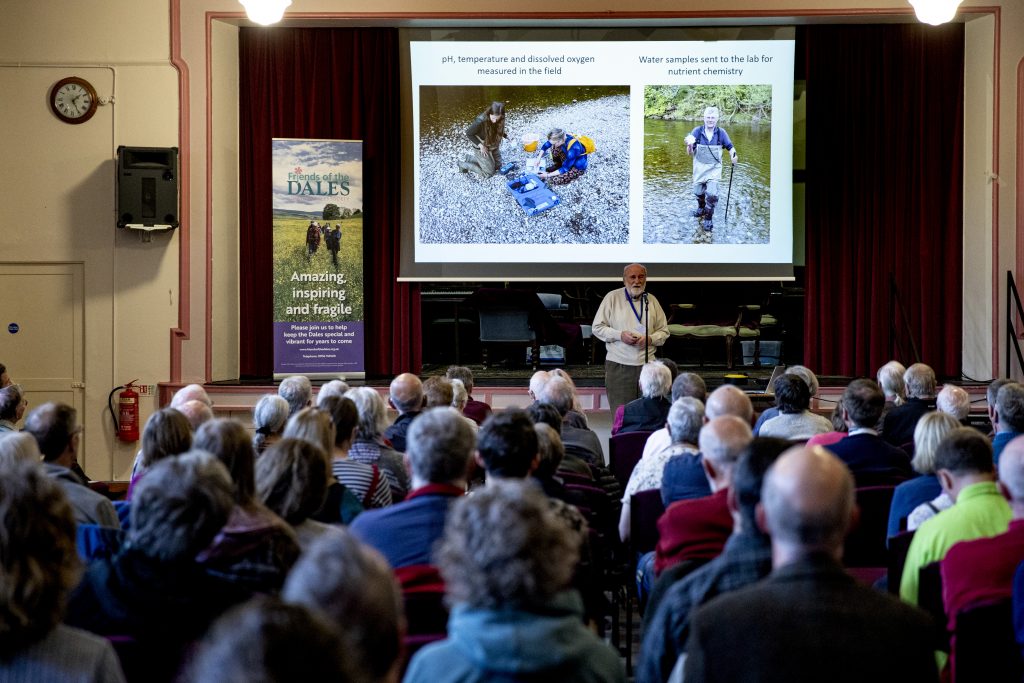A simple enough question and one which some of Yorkshire’s best environmental campaigners debated at our successful September 2022 conference…
With drought, hosepipe bans and the large-scale discharge of sewage making the headlines for much of the summer, our conference debating the health of our country’s rivers, with a special emphasis on the River Wharfe, was timely, drawing more than 160 people to Grassington Town Hall.
River experts from a variety of disciplines and backgrounds built a case for what they saw as the main issues affecting our precious water courses − which, according to one of our guest speakers, Charlotte Simons of the Dales to Vale Rivers Network, only 14% are in a good ecological state.
Reasserting and rekindling our bond with nature was universally agreed as a first and vital step to improving river health, with educating children and young people in how the river ecosystem works agreed as a good place to start.
Other practical actions we can all take include:
- Conserving water at home through the use of water butts / using less
- Checking pets are not contaminating river water and grey water via home bathing through the use of highly toxic topical flea and tick treatments (www.wildtrout.org/news/pet-flea-treatments-in-our-rivers) – speak to your vet about switching to safer oral supplements
- Water users should aim to adopt the ‘Check, Clean, Dry’ campaign to prevent aquatic plants and animals unwittingly being transported by equipment, such as kayaks and fishing gear to new, delicate water environments as invasive species.
- Litter picking in and besides rivers – where safe to do so
- Encouraging children and young people to love and respect rivers and river life – a range of ideas and educational resources are available at: www.ydrt.org.uk/resources/education-resources/
- Finally, with more than half of sewer flooding caused by blockages in sewers and drains, a significant cause pollution – do your part by only flushing ‘the three Ps’, i.e. ‘poo, pee and paper’. So-called other ‘flushable’ products, such as wipes cause blockages and never pour fats, oils and greases down the sink.
You can read the full conference report here:
